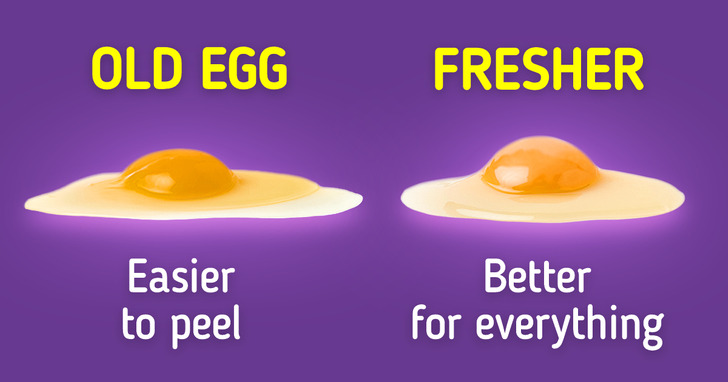How to Be an Egg Expert in 3 Minutes
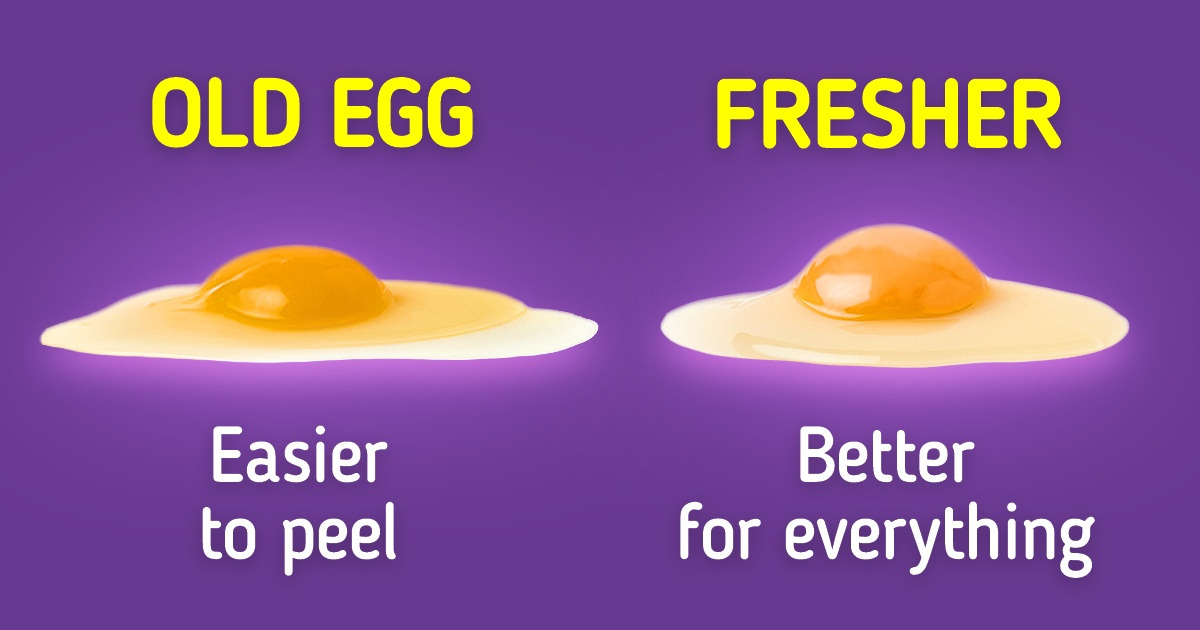
The quality of eggs depends a lot on how you store them. In the right conditions, they can remain fresh for 3-5 weeks or even longer if you freeze them. 5-Minute Crafts will tell you how to correctly store eggs at home and even prolong their shelf life if needed.
1. Storing them right after purchasing
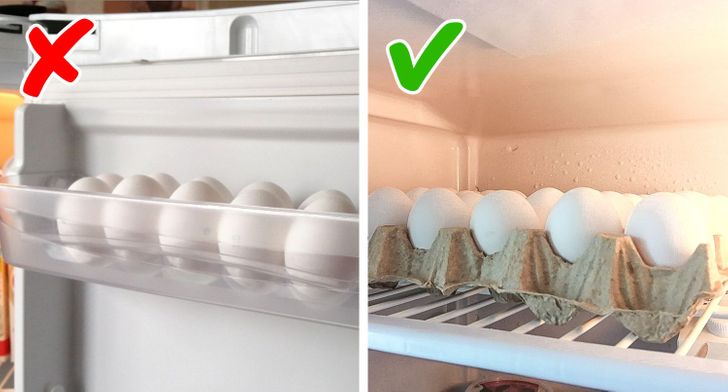
Storing eggs on the fridge door isn’t the best idea, as they’ll suffer from temperature fluctuations when you open and close it. Instead, place the eggs into the fridge on the upper or middle shelf where the temperature is most stable. When kept there, the eggs can be stored for 3-5 weeks — but not longer than the expiration date written on the pack indicates.
2. Storing egg whites and yolks
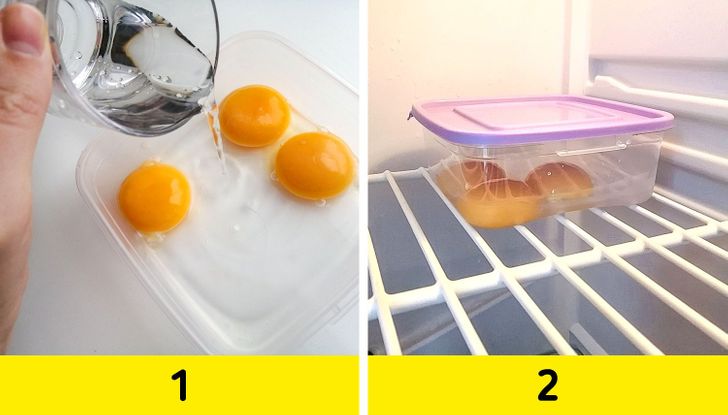
Fresh whites and yolks can be stored in sealed containers for up to 4 days. To prevent the yolks from drying, add a bit of cold water to them. And before using them, remove the water.
3. Storing boiled eggs
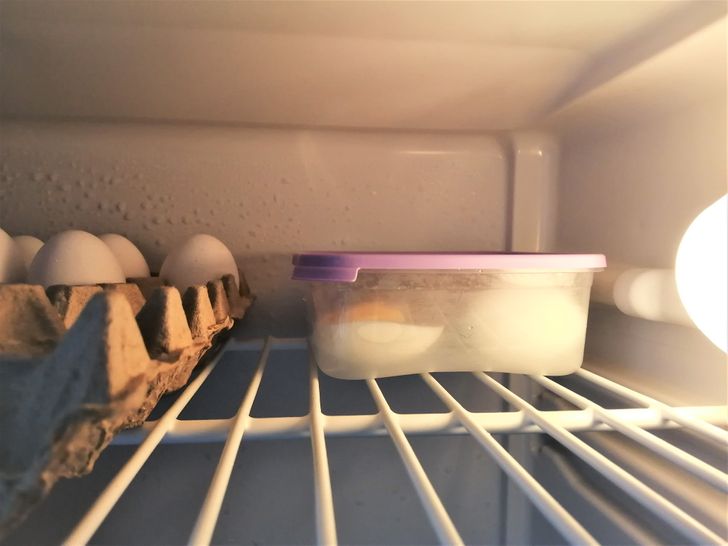
Just like any other prepared foods, boiled eggs should be stored on the upper shelf of the fridge. Put them in a container, close it with a lid, and eat the eggs within a week.
4. Storing meals with eggs
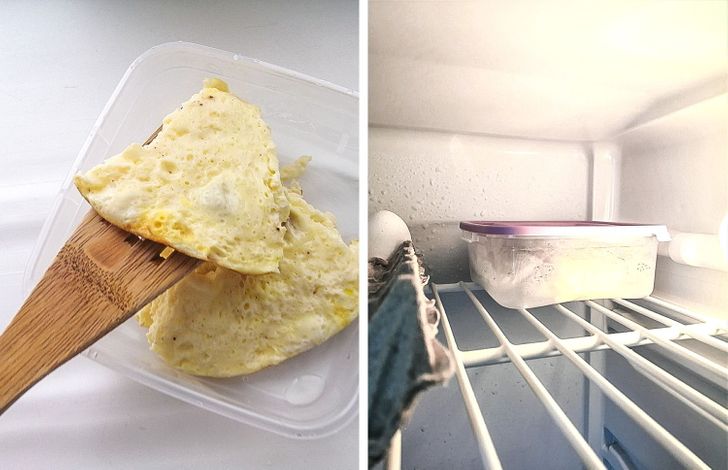
These are stored the same way as boiled eggs — in a container with a lid on. But the shelf life is a bit shorter, and prepared meals should be eaten within 3-4 days.
Bonus #1: how to freeze eggs
- To prolong the shelf life of fresh eggs, you can freeze them. Keep the eggs’ whites and yolks separately in containers and without shells. It’s not recommended to freeze eggs in the shell, as it can impact the eggs’ quality and structure.
- Frozen eggs can be stored for up to 1 year. But ensure to keep the freezer at the right temperature, not above −1°F or −18.33°C.
- You can use ice cube trays to freeze egg yolks in.
- If you just freeze the yolks without preparing them properly, they won’t be suitable for cooking. Therefore, do the following: add 1/8 tsp of salt or 1.5 tsp of sugar to every 4 yolks. Write all these details on the container, for example, if you added salt or sugar since you’ll likely use them for different purposes (like savory meals or desserts).
Bonus #2: tips for how to tell if eggs are fresh
- A fresh egg has a rounded yolk, standing tall in 2 distinct parts with its white, which surrounds it with its thick viscous and thinner watery outer layer.
- After one week, the yolk gets flattened and dense, and the thick white becomes runny.
- Use the freshest eggs possible for a nice, rounded shape while frying or poaching.
- An egg’s quality and age are based on how much air it has inside. To test if there’s air inside an egg, put it in cold water. It’s fresh if it sinks and stays in a horizontal position. It’s older, maybe a week old, if it tilts. It’s stale if it floats up to the top of the water, which means you should avoid using it.
